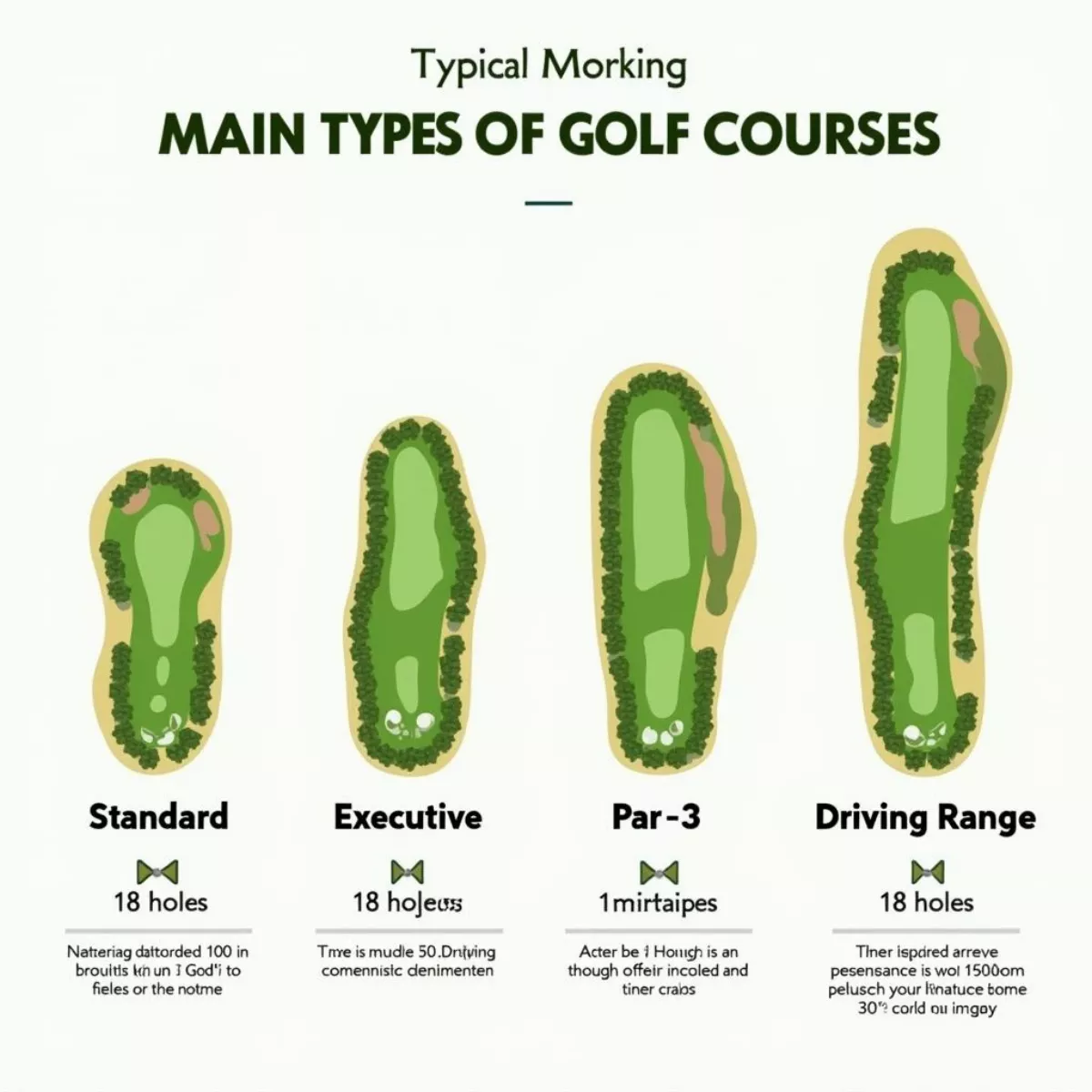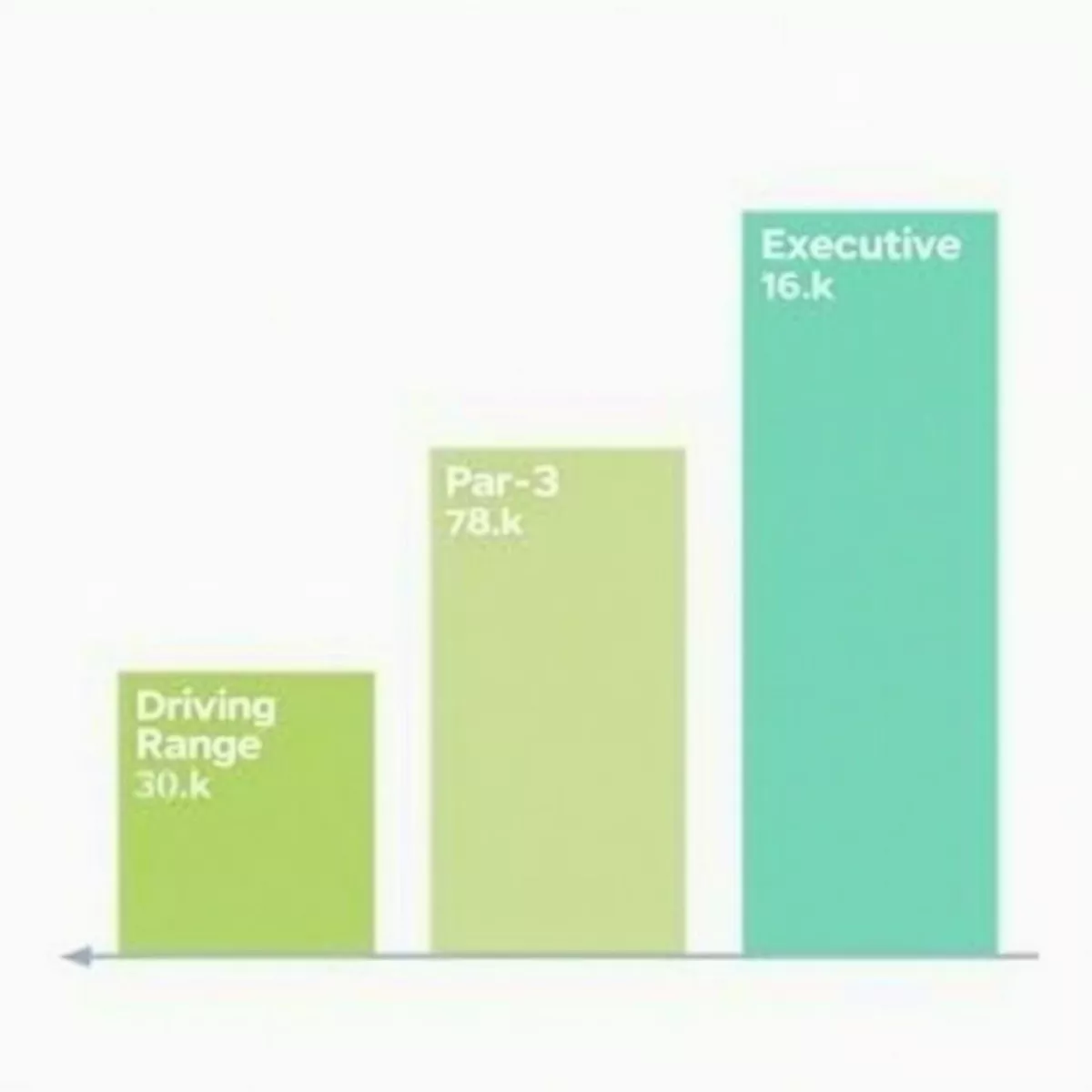how many acres to build a golf course

Building a golf course is a monumental undertaking that involves significant planning, resources, and land. If you’ve ever wondered how many acres you’d need to establish a golf course, you’re in luck! In this guide, we’ll break down everything you need to know about the acreage required for different types of golf courses and offer some tips to ensure your project is successful.
Understanding the Basics
Before diving into specific acreage requirements, let’s familiarize ourselves with the typical types of golf courses and their average sizes.
Types of Golf Courses
- Standard Golf Course (18 holes):
- Generally requires 100 to 200 acres.
- This is the most common type of golf course, designed for recreational play.
- Executive Golf Course:
- Usually spans 30 to 60 acres.
- Shorter holes are designed for quicker rounds.
- Par-3 Course:
- Typically takes up 20 to 40 acres.
- These courses feature only par-3 holes and are great for beginners.
- Driving Range:
- Mere 10 to 20 acres.
- Primarily for practice, ranges may not include full golf holes.

Factors Affecting Acreage Requirements
While the figures above convert to a basic understanding, several key factors can influence the total land needed for a golf course:
- Topography: Golf courses on hilly terrain may require more space to accommodate shifts in elevation, whereas flat land can optimize hole placement.
- Type and Size of Courses: Longer courses with more hazards and landscaping need additional acreage.
- Property Layout: Existing buildings, natural features like trees and ponds, and optimal hole routing will all factor into land use.
- Facility Amenities: Golf courses intended to provide additional facilities—like clubhouses, parking lots, and practice areas—will obviously need more land.
Average Acreage Breakdown
To provide more clarity on how much land you might need, here’s a table that summarizes the acreages for different golf course types:
| Type of Golf Course | Typical Acreage Needed |
|---|---|
| Standard (18 holes) | 100 – 200 acres |
| Executive (9-18 holes) | 30 – 60 acres |
| Par-3 | 20 – 40 acres |
| Driving Range | 10 – 20 acres |

Designing Your Golf Course
Once you’ve figured out how much acreage you might need, it’s time to think about the design aspect. Here are some key considerations:
- Environmental Impact: Understand how your golf course will affect the surrounding ecosystem. Native plants and wildlife should be a priority.
- Sustainability: Using eco-friendly materials and practices will not only reduce costs but can also enhance your course’s appeal.
- Accessibility: Consider including pathways, restrooms, and other amenities to make your course welcoming to all players.
Key Takeaways
- A standard 18-hole golf course requires 100-200 acres.
- Different types of courses have varying land requirements, ranging from 20 acres for a par-3 course up to 200 acres for larger ones.
- Geographic and environmental factors can significantly impact land utilization.
- Thoughtful design and sustainable practices are essential for long-term success.

Frequently Asked Questions
Here are some common questions related to building a golf course:
1. Do I need permits to build a golf course?
Yes, you will need various permits, including environmental assessments and zoning clearances.
2. How much does it cost to build a golf course?
Costs can range from $1 million for a simple 9-hole course to over $3 million for a fully developed 18-hole course.
3. Is it profitable to own a golf course?
Profitability depends on location, marketing, management, and community interest. Many courses struggle financially without diversifying services offered.
4. What’s the maintenance cost for a golf course?
Annual maintenance can range from $500,000 to $1 million for an 18-hole course, depending on the region and climate.
5. How long does it take to build a golf course?
Construction typically takes 12 to 18 months, not including planning and design phases.
6. Can I build a golf course on agricultural land?
That largely depends on local zoning laws and land use regulations. Check with local authorities for specific guidelines.
7. What equipment is needed for maintenance?
Common equipment includes mowers, aerators, sprayers, and maintenance carts.
8. How can I ensure my course is environmentally friendly?
Adopt water-saving irrigation systems, use organic fertilizers, and preserve natural habitats.
9. What are the key design elements?
Consideration of hole layout, natural obstacles, and player accessibility creates a more enjoyable playing experience.
10. Is a golf course a good business investment?
It can be, but it requires careful planning, a solid business model, and a deep understanding of local economics.
Conclusion
Embarking on building a golf course is an exciting yet challenging venture that requires detailed planning and a solid understanding of the land you’ll utilize. From standard 18-hole layouts to cozy par-3 courses, the specifics of your project will depend greatly on your vision and the space you have available.
Remember that every golf course is a unique blend of design, environment, and player experience, so finding the right acreage is just the start of a rewarding journey that contributes not only to your business but also to the community and the environment you operate within.
For additional resources on golf course management or design, don’t hesitate to explore links within this site, and best of luck with your project!